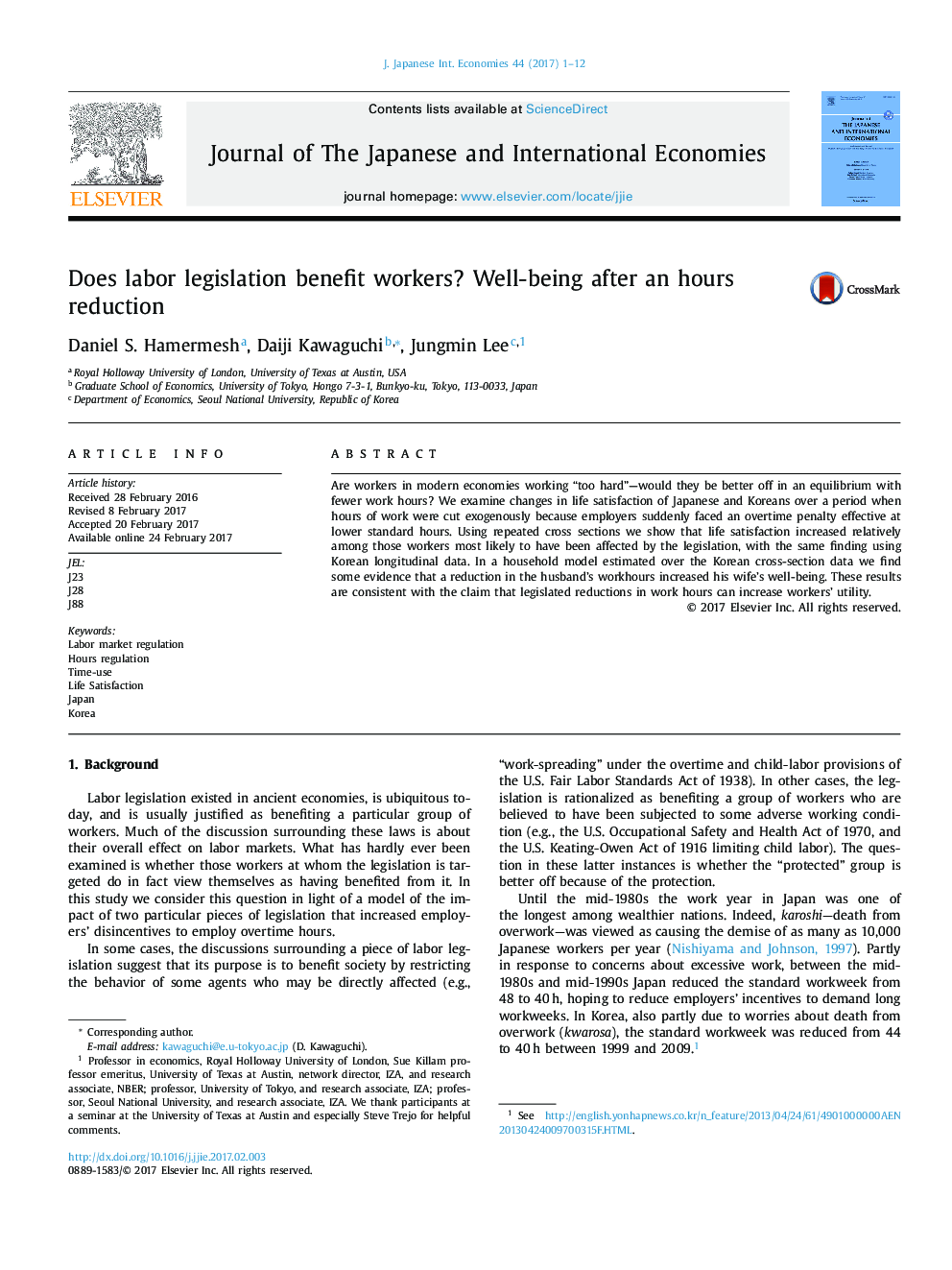| Article ID | Journal | Published Year | Pages | File Type |
|---|---|---|---|---|
| 5101250 | Journal of the Japanese and International Economies | 2017 | 12 Pages |
Abstract
Are workers in modern economies working “too hard”-would they be better off in an equilibrium with fewer work hours? We examine changes in life satisfaction of Japanese and Koreans over a period when hours of work were cut exogenously because employers suddenly faced an overtime penalty effective at lower standard hours. Using repeated cross sections we show that life satisfaction increased relatively among those workers most likely to have been affected by the legislation, with the same finding using Korean longitudinal data. In a household model estimated over the Korean cross-section data we find some evidence that a reduction in the husband's workhours increased his wife's well-being. These results are consistent with the claim that legislated reductions in work hours can increase workers' utility.
Related Topics
Social Sciences and Humanities
Economics, Econometrics and Finance
Economics and Econometrics
Authors
Daniel S. Hamermesh, Daiji Kawaguchi, Jungmin Lee,
